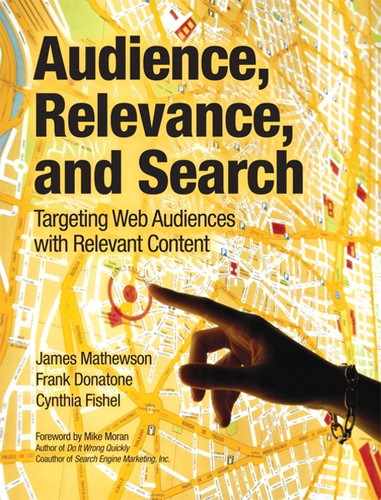Foreword
Although in recent years the Internet has been overrun with images, audio, and video, the Web remains, at its heart, a writer’s medium.
Why do I say this? Because the written word is at the heart of every Web experience. No matter how much video you watch, images you look at, and audio you listen to, you read a lot more words. While Web sites demand skilled people to create all of these kinds of content, the demand for Web writers has never been greater.
And that demand keeps growing, both because more companies each day are using the Web as a marketing tool, and because messages are virtually unlimited in size. Unlike every other medium, there is no natural limit to the amount of space that can be used for a Web message. Advertising increases in cost as size goes up. Direct mail costs increase for paper and stamps. On the Web, the words can just go on and on with almost no incremental cost—you can always create one more page that explains one more idea.
So, yes, it’s a writer’s medium. But not just any writer need apply. If you are an accomplished writer, schooled in creating advertising copy, magazine articles, direct mail pieces, newspaper stories, books, or any other kind of printed media, you have the basic skills required to succeed on the Web. But you don’t have all the skills you need.
The book you hold in your hands can help any experienced writer adapt those skills for Web writing. Web writing is a challenge for even the most gifted print writer, for several reasons.
• Web writers must be brief. The act of reading on an electronic device causes readers to skim content rather then read in depth. Even though this user behavior might change over time, as people get more used to reading from a computer screen, the relatively cramped experience of reading from mobile devices will always demand brevity for online writers. While you can always create another page, you must be brief and to the point within each page.
• Web writers must appeal to search engines. Because Google and other search engines are so important in driving traffic to Web sites, no writer can afford to overlook search engines as an audience equally important as Web users. While many elements go into successful search marketing, the words on the page are the most important.
• Web writers must create pass-alongs. Web sites have always needed links from other sites, and well-written content makes that happen. Nowadays, social media allows customers to pass along good content to other Web users, using blogs, Twitter, social networks, and many other means. This new stream of minute-by-minute content creates a nearly endless demand for good writers.
If you are feeling a bit overwhelmed at the thought of adapting your writing style for all of these new demands, don’t be. This book leads you through these concepts, and many more, in step-by-step fashion. The authors are experts in the practical approaches needed to succeed as a Web writer for any company.
You’ll learn everything, from determining the relevance of your message to your audience, through measuring the results of your efforts. You’ll especially learn how to use search engines and social media to ensure that your message is seen by the maximum possible audience.
Don’t assume that everything you know about writing is wrong when it comes to the Web. It’s not. You need not be intimidated from branching out to this new online medium. But neither should you assume that there’s nothing to learn. This book will help you leverage the writing skills you’ve always had to enter the brave new world of Web writing success. So stop reading this foreword and dive into what you really need to know!
—Mike Moran
Author of Do It Wrong Quickly
Coauthor of Search Engine Marketing, Inc.
